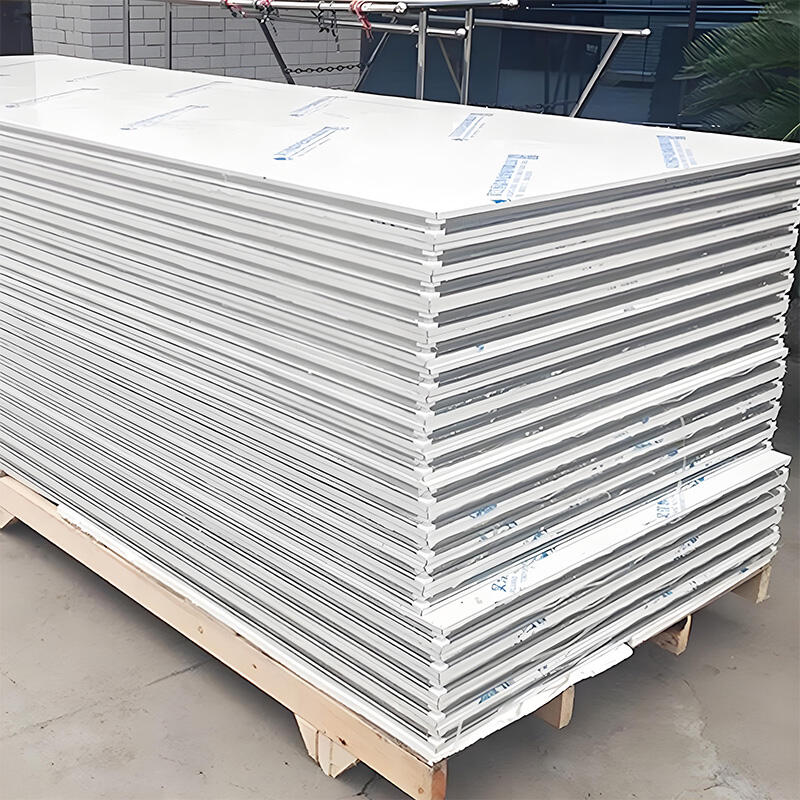Understanding the Versatility of Modern Modular Construction
The construction industry has witnessed a remarkable transformation with the rise of modular housing solutions. This innovative building approach has revolutionized how we think about residential and commercial spaces, offering unprecedented flexibility and efficiency in construction. As the demand for sustainable, cost-effective, and rapidly deployable housing solutions continues to grow, modular housing has emerged as a compelling answer to various construction challenges.
Modern modular housing represents a significant leap forward from the prefabricated structures of the past. Today's modular buildings are sophisticated, customizable, and built to the same codes and standards as traditional construction, while offering additional benefits in terms of speed, quality control, and environmental impact.
Residential Applications of Modular Housing
Single-Family Homes and Urban Housing
One of the most successful applications of modular housing is in the single-family home sector. These modular homes offer customization options that rival traditional construction while providing faster build times and better quality control. Urban areas particularly benefit from modular housing solutions, as they can be designed to maximize limited space while maintaining aesthetic appeal and functionality.
Modern modular homes can be designed in various architectural styles, from contemporary to traditional, making them suitable for diverse neighborhood contexts. The ability to construct most of the home in a controlled factory environment ensures consistent quality and reduces weather-related delays, making it an attractive option for homeowners and developers alike.
Multi-Family and Apartment Complexes
The scalability of modular housing makes it particularly well-suited for multi-family residential projects. Apartment complexes built using modular techniques can be completed in significantly less time than traditional construction methods, while maintaining high standards of quality and design. These developments can include various amenities and configurations, from studio apartments to larger family units.
The repeatability of modular units in multi-family projects leads to cost efficiencies and consistent quality across all living spaces. Additionally, the reduced construction time means faster return on investment for developers and earlier availability for residents seeking housing solutions.
Commercial and Institutional Applications
Healthcare Facilities and Medical Centers
The healthcare sector has embraced modular housing solutions for various applications, from temporary clinical spaces to permanent medical facilities. The controlled manufacturing environment ensures sterile conditions and precise specifications required for healthcare settings. Modular construction allows for rapid deployment of medical facilities during emergencies while maintaining the high standards necessary for healthcare environments.
These facilities can be designed to accommodate specific medical equipment and workflows, with the flexibility to modify or expand as needs change. The reduced construction time is particularly valuable in healthcare settings where minimizing disruption to existing operations is crucial.
Educational Facilities and Campus Housing
Educational institutions increasingly turn to modular housing solutions for student accommodation and classroom facilities. The ability to construct during summer breaks and quickly deploy new facilities makes modular construction particularly attractive for schools and universities. These buildings can be designed to meet specific educational requirements while providing comfortable living spaces for students.
Campus housing built using modular techniques can incorporate modern amenities and sustainable features, creating attractive living environments that meet the expectations of today's students. The flexibility of modular design allows for future modifications or relocations as campus needs evolve.
Specialized Applications and Emerging Markets
Disaster Relief and Emergency Housing
In disaster-stricken areas, modular housing provides rapid deployment of safe, comfortable temporary or permanent housing solutions. The speed of construction and ability to manufacture units while site preparation is underway makes modular housing particularly valuable in emergency situations. These structures can be designed to withstand various environmental conditions while providing immediate shelter for affected communities.
The scalability of modular housing allows for quick response to varying levels of need, from individual family units to entire communities. The quality and durability of modern modular construction ensure these emergency solutions can serve as long-term housing when needed.
Remote and Resource Development Projects
Modular housing excels in remote locations where traditional construction might be impractical or cost-prohibitive. Mining operations, research stations, and other remote projects benefit from the ability to manufacture housing units in controlled environments and transport them to challenging locations. These structures can be designed to withstand extreme conditions while providing comfortable living spaces for workers.
The reduced on-site construction time minimizes the impact on sensitive environments and allows for faster project implementation. Additionally, modular units can be designed for easy relocation or repurposing as project needs change.
Frequently Asked Questions
How long does it take to complete a modular housing project?
The timeline for modular housing projects typically ranges from 30-50% shorter than traditional construction. While actual completion times vary based on project size and complexity, most single-family modular homes can be manufactured and installed within 3-4 months, compared to 6-12 months for conventional construction.
Can modular housing be customized to specific requirements?
Modern modular housing offers extensive customization options in terms of layout, finishes, and features. Manufacturers can accommodate specific design requirements while maintaining the efficiency benefits of modular construction. From exterior aesthetics to interior configurations, modular homes can be tailored to meet individual preferences and local architectural standards.
What makes modular housing environmentally friendly?
Modular housing typically generates less waste during construction due to precise material calculations and controlled manufacturing environments. The buildings can incorporate sustainable materials and energy-efficient features, while the reduced construction time minimizes site impact. Additionally, many modular units can be disassembled and repurposed, supporting circular economy principles.


